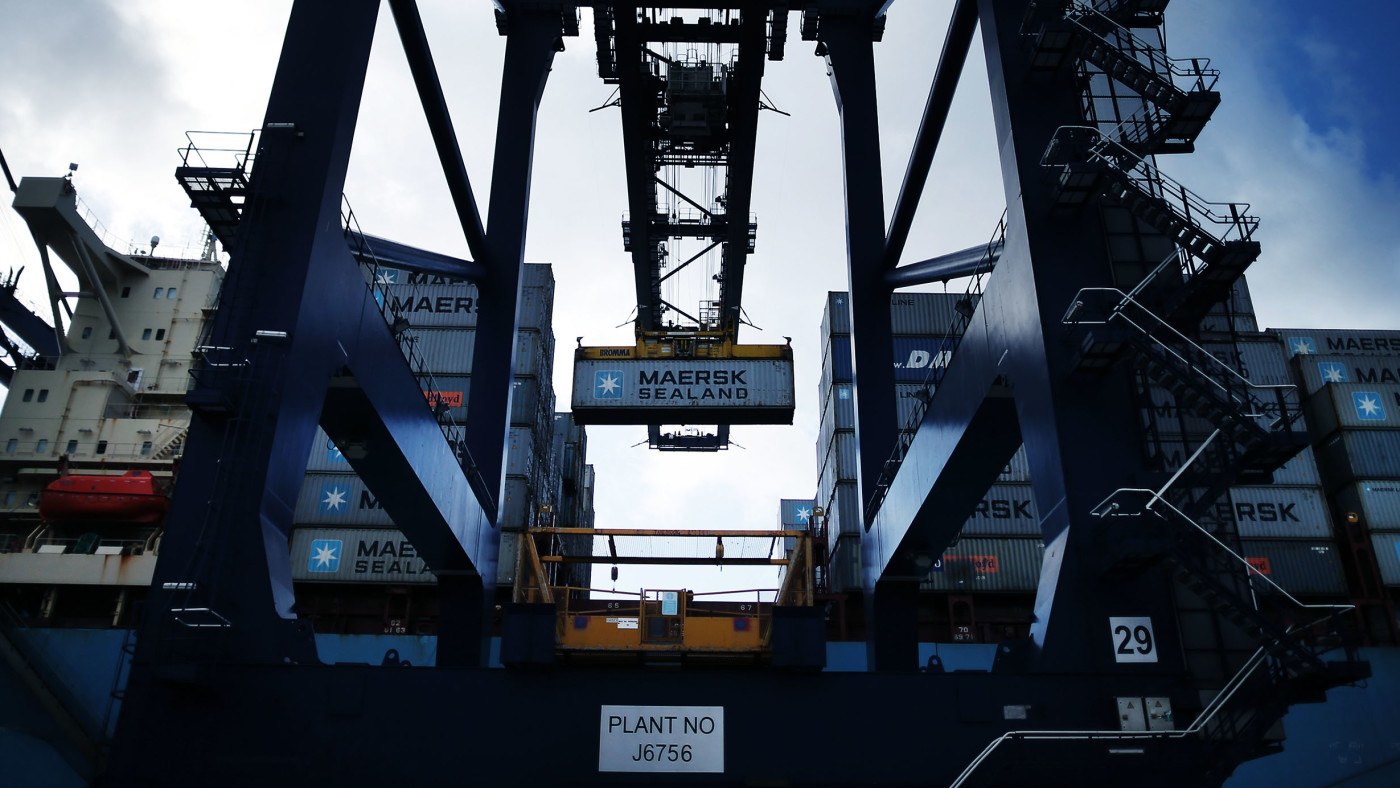Amidst the debates about nationalising heavy industry and the constant loud drone of Brexit, you might have missed it, but last week the UK was recorded as having run, in the last three months of 2015, its largest current account deficit since records began – some 7% of GDP. Those papers that did explore this record ran it as a bad news story, as current account deficits are usually reported that way. I think that’s rather confused.
If the UK is running a current account deficit, that means there must be more money going out of the country to pay for imports and to pay investment returns to foreigners, than is coming in from imports and from Britons’ investments abroad. But since the UK has a floating exchange rate, that can’t be the end of the story, because if money tried to leave the country – e.g. to go to the US or Eurozone – that would cause the pound to fall (against the dollar and/or euro) until there was no net departure any more. If money is continuously going out from net trade and net investment returns, it must be coming in from somewhere else, so that total payments are in balance. (That’s called the “balance of payments identity”.)
The place it comes in is called the “capital account”. Whenever you read about there being a current account deficit there must be an equal and opposite capital account surplus. What does it mean for the UK’s capital account to be in surplus? It means that foreigners invested more in the UK than UK citizens invested abroad. So another way to express that “record current account deficit” is to say it’s a “record capital account surplus”. That means foreigners are enormously more keen on investing in the UK than Brits are in investing elsewhere – in fact investors are the keenest they’ve ever been on investing in the UK relative to the rest of the world. Suddenly that doesn’t sound like such a bad news story, does it?
Now one shouldn’t over-state how good news this is. After all, part of what’s going on is that investment prospects in the rest of the world are rubbish. But we should understand and appreciate that capital flows are much faster and more flexible than trade flows. Sometimes reporting of current account deficits might give the impression that what happens is that Britain decides it wants to import more than it exports (creating a current account deficit), and then has to go out to find investors to “fund” that deficit (on the capital account). But that isn’t how it works at all. What actually happens is that investors adjust their portfolios rapidly, which in turn induces shifts in the value of the pound (and in UK bond yields and implicit expectations about future interest rates, but let’s not over-complicate things) and with the pound being stronger (plus some of that other stuff I mentioned happening) it becomes cheaper to import and more expensive to export, creating a trade deficit. Also, as more investment flows in, UK firms owe more investment returns to foreigners, which flow out on the current account.
That may all have seemed a bit complicated, but the key thing to grasp is that current account deficits are caused by capital account inflows. We have a current account deficit because we have a capital account surplus. That is the direction of causation. It isn’t that we have a capital account surplus because we “need” it to “fund” our current account deficit.
So what that means is that a huge current account deficit, i.e. a huge capital account surplus, is a massive vote in (relative) confidence in Britain by international investors. In that sense it isn’t bad news – it’s great news!
Now some Eeyores point out that if we are running a huge capital account surplus, that means we are “vulnerable” to foreigner investors deciding to withdraw their money. True enough – though we’d also be “vulnerable” to that if we were running a balanced current account or a current account surplus. Whatever – it’s certainly the case that if foreign investors suddenly decided that they did want to put their money into Greece or China instead of the UK, our current account would fall.
In practice, what would probably happen is that the value of the pound would fall and import prices would rise – as we saw in the first couple of months of 2016. Since the UK has inflation far below target (and indeed has been in deflation recently) and can’t cut interest rates any further, being able to loosen monetary policy via a depreciation in the pound is presumably exactly the kind of thing one might hope would happen.
Overall, a key lesson here is that floating exchange rates allow a lot of economic processes, and in particular those relating to the UK’s position relative to the rest of the world, to be resolved via the exchange rate. That might be a lesson some folk should bear in mind about Brexit too. There’s every chance that much of the short-term impacts of Brexit will be buffered by exchange rate movements. That may seem terribly exciting if you trade FX – and I’m not suggesting the sums involved won’t be significant. But the ordinary “woman-in-the-street” might well find that, after a short while, she’s wondering what all the fuss was about.


